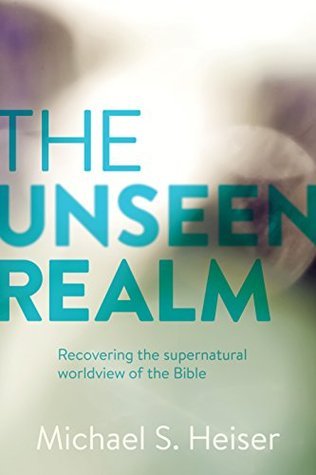What do you think?
Rate this book


413 pages, Hardcover
First published July 1, 2015
The story of the Bible is about God’s will for, and rule of, the realms he has created, visible and invisible, through the imagers he has created, human and nonhuman. This divine agenda is played out in both realms, in deliberate tandem.
This phrase and others like it refer to God’s rule over all things, visible or invisible, through his intelligent agents—his imagers—both human and nonhuman. Since…it was God’s original intention for humanity (and thus humanity’s original destiny) that they rule and reign with him as part of his heavenly nonhuman household, human affairs are encompassed in the divine council worldview. In biblical theology, there is a symbiosis of both realms, whether in loyal service to God, or in spiritual conflict in the wake of divine and human rebellion.”
The Old Testament…describes a world where cosmic-geographical lines have been drawn. Israel was holy ground because it was Yahweh’s “inheritance,” in the language of Deuteronomy 32:8–9. The territory of other nations belonged to other elohim because Yahweh had decreed it. Psalm 82 told us that these lesser elohim were corrupt. We aren’t told how the elohim Yahweh assigned to the nations became corrupt, only that they were. It is clear from Deuteronomy 4:19–20; 17:3; 29:25; and 32:17 that these elohim were illegitimate for Israelite worship.